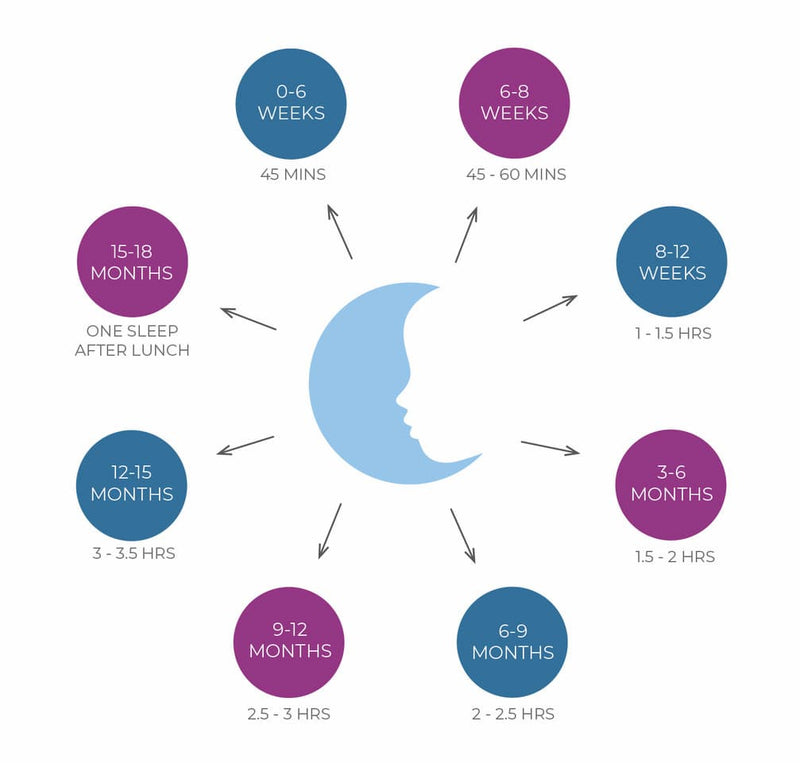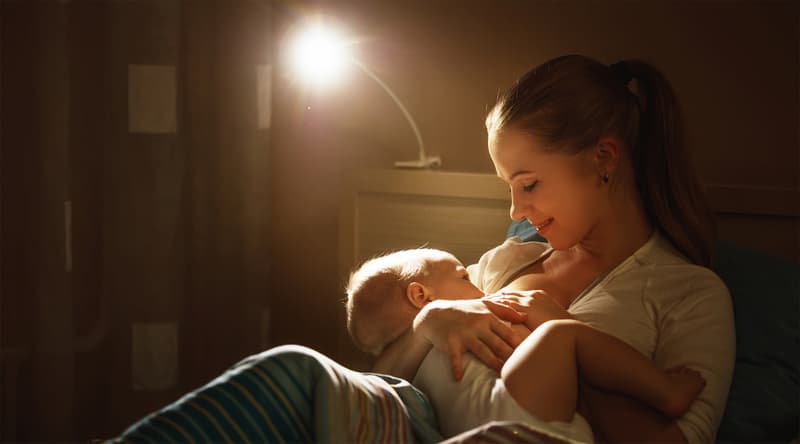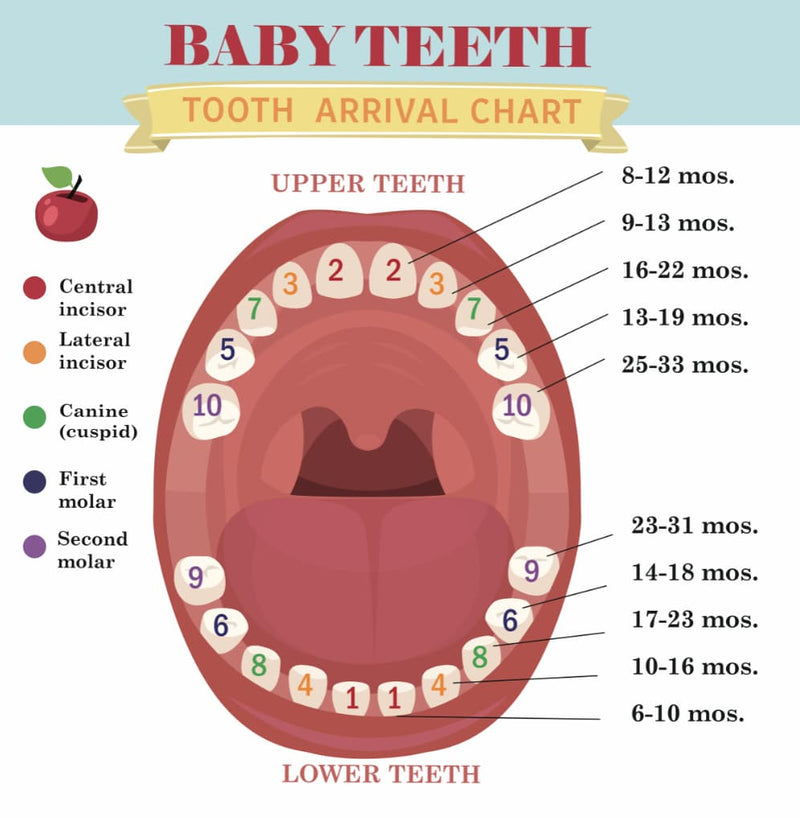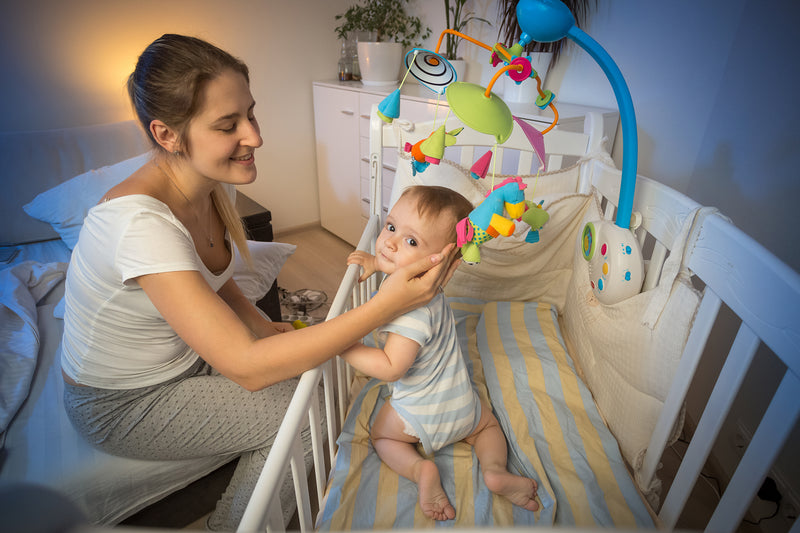
3 - 4 Month old Sleeping and Feeding Schedule
Creating a schedule for a 3-4 month old baby involves understanding their developmental needs, sleep patterns, and feeding requirements. Keep in mind that every baby is unique, so you may need to adjust the schedule based on your baby's individual preferences and development.
Here's a comprehensive guide on what to expect at 3 - 4 Months of age
Wake Windows
Babies at this age typically have wake windows of 1.5 to 2 hours. This means they can comfortably stay awake for this duration before needing to nap.
Total Daily Sleep
Most babies between three & four months of age do best with 4-4.5 hours of total daytime sleep and 10-12 hours of night sleep.
Nap Lengths and Frequency
It's common at the age for some babies to be having 4-5naps per day, but some babies might be transitioning to 3-4 naps.
Nap Lengths
Naps can vary in length, with some shorter catnaps (30-45 minutes) and longer naps (1-2 hours). Babies might still be mastering the skill of connecting sleep cycles. It’s important not to let any one nap go longer than 2 hours.
Remember that flexibility is key, as every baby is different. Pay attention to your baby's cues and adjust the schedule as needed.

The 4 Month Regression
The 4-month sleep regression is a normal developmental stage where infants, around the age of 3 to 4 months, experience disruptions in their sleep patterns. This regression is marked by changes in sleep cycles, leading to more fragmented and restless sleep for both babies and parents. You may notice increased night waking, shorter naps, and fussiness during sleep routines.
The 4-month sleep regression is not merely a passing phase; it is a lasting shift that persists until your baby masters the skill of self-soothing. If you've relied on feeding, holding, patting, or bouncing to lull your baby to sleep, you may notice that these methods become less effective during this period. The regression signals a developmental leap, prompting the need for babies to acquire self-soothing techniques for improved sleep. What worked before may be different now, and The Baby Sleep Magic App can help.
Developmental Milestones
Motor Skills: Your baby is likely developing better head control, and some may start rolling over.
Visual and Auditory Development: Improved focus and tracking of moving objects. Responds to sounds and voices.
Social and Emotional: Developing a stronger bond with caregivers, recognising familiar faces, and showing more interest in surroundings.
Active Play Time
To achieve good naps your baby needs to have plenty of stimulating activity time during their wake windows,
Here are some example activities
Tummy Time:
Encourage tummy time during wake periods to strengthen neck and upper body muscles.
Reading:
Engage in simple, colourful board books during wake periods to stimulate visual development.
Play Gym or Mat:
Use a play gym or mat with hanging toys to encourage reaching and batting.
Feeding
The connection between a full tummy and baby sleep is profound and undeniable. Adequate feeding during the day can lead to deeper sleep cycles at night. Babies who are well-nourished are more likely to experience uninterrupted periods of deep, less protesting and more restorative sleep.
Breastfeeding/Formula Feeding:
Aim to offer a full feed every 2-3 hours during the day, with the opportunity for a “top up” prior to nap time.
Appropriate Bedtime
There is no right or wrong answer for this..most babies do best with a bedtime anywhere between 7-8 PM but adapt it to your baby's natural sleep patterns.
Un-swaddling
Around 3-4 months, some babies may start showing signs of rolling over. At this point, it's recommended to start transitioning out of swaddling to ensure safe sleep. You can try using a sleep sack or a transitional swaddle with arms out.

Night Wakings
Night feedings may still be necessary, and many babies may wake 1-2 times during the night for feeds. Aim to keep night feeds 4hrs apart
When do babies sleep through the night?
Well this is the million dollar question… In general, the answer is around 6 months, provided your baby is on track growth-wise & is capable of self-settling.
There is no definite time or stage of development for this to happen. It really depends, again, on the individual baby and the situation. Waking up during the night is normal for all of us, especially for babies who have. much shorter sleep cycles than adults. Its how you settle your baby to sleep through the day, that will impact on how they sleep overnight.
Try to resist feeding to sleep and be consistent with your settling techniques. Please know that inside the Night Weaning Resource inside the App I will teach you how to reduce those night feedings and work slowly and gently towards longer stretches of sleep.
Can I Sleep Train my baby at this age?
Baby Sleep Magic does not endorse sleep training for babies under the age of four months of age, even between the age of four to seven months, sleep methods are approached with caution. However, it is never too early to implement “Healthy Sleeping Habits”.
Inside the Baby Sleep Magic App I will walk you through all the steps to gently help your baby fall asleep more independently.
________________________________________________________________________________
About Me
Chantal Murphy
I am a mother to two boys, a paediatric sleep consultant, and the founder of Baby Sleep Magic. From the beginning of my journey, helping parents has truely been my passion! With this in mind, I developed The Baby Sleep Magic App to provide parents with evidence-based research, essential skills, knowledge, and confidence required to enhance your child's sleep, allowing your entire family to enjoy the restful nights you deserve.
________________________________________________________________________
Learn how to get your baby to sleep ALL night using a CRY FREE approach!!
"Working on your baby's sleep doesn’t mean breaking any bonds or attachments you have with your little one"
If you're feeling confused and overwhelmed and not sure where to start rest assured you’re not alone and I understand. Allow me to guide you through everything you need to know to confidently manage sleep, so you can get your nights back & enjoy the parenting journey!
































